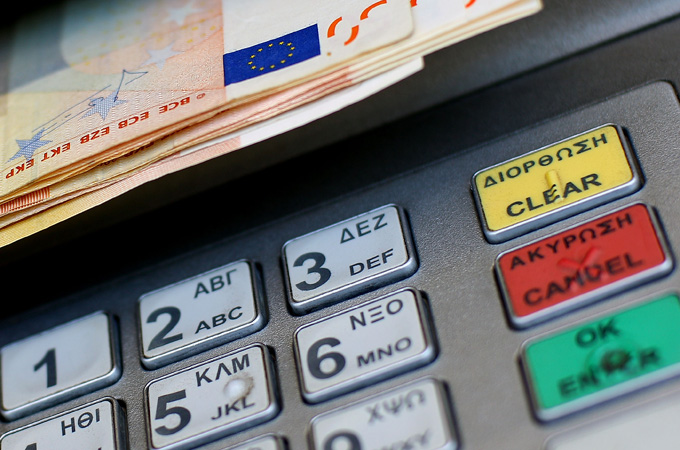Germany denies proposing Greek euro vote
Spokesperson says chancellor did not float idea of popular vote on membership during phone call with Greek president.

A Greek-German row has broken out after Greece’s government spokesman said Chancellor Angela Merkel raised the idea of Athens holding a referendum about its eurozone membership next month, which Berlin vehemently denied.
The confusion arose after a telephone call earlier on Friday between Merkel and Greek President Karolos Papoulias, in which Merkel conveyed her hope for a functioning government in Greece after repeat elections on June 17.
Merkel’s comments were first referred to by Dimitris Tsiodras, Greek government spokesman, in a statement: “[Merkel] also conveyed to the president thoughts on holding a referendum along with the elections, with the question of to what extent Greek citizens wish to remain in the eurozone.”
Greece is set to hold elections on June 17 to end a political deadlock after a previous vote on May 6 produced a hung parliament.
The rise of parties opposed to austerity commitments, made to secure vital international rescue loans, has raised fears that if anti-bailout parties prevail the country could be forced to leave the euro.
Tsiodras said a referendum was “obviously” out of the question, as it falls outside the jurisdiction of Greece’s newly appointed caretaker government.
‘Inaccurate’ claim
A German government spokeswoman said reports on the alleged referendum proposal “are inaccurate”. She said the conversation between Merkel and Papoulias – a fluent German speaker – was confidential.
| In Depth | |||||||||
|
The spokeswoman, who spoke late on Friday after consulting with the Chancellor’s office, cannot be named, in line with government policy.
Antonis Samaras, the Conservative leader whose pro-bailout New Democracy party won a Pyrrhic victory in the May 6 vote, said Merkel’s reported suggestion was “at the very least unfortunate”.
“Greece doesn’t need a referendum to prove its choice in favour of the euro, a choice that it’s defending with bloody sacrifices,” he said.
“But the Greek people deserve the respect of their European partners.”
Radical Left Coalition leader Alexis Tsipras – who led his anti-bailout party to a surprise second place in the last election – said Merkel was treating Greece “as a protectorate”.
Relations between the two countries have been turbulent over the two and a half years of Greece’s acute financial crisis, which led to Athens being kept solvent by international rescue loans since May 2010.
Support for austerity
Germany is a staunch advocate of the hugely unpopular austerity measures Greece adopted to secure its international rescue loans.
With a government in Athens unable to make binding decisions until the elections, all eyes will be on Germany and other European leaders for signs that they will prove flexible in their demands for new austerity measures next month and, more broadly, in Greece’s bailout terms.
While Merkel has hinted that European economic policies could be supplemented with more growth-oriented measures, she has not signalled any willingness to significantly ease Athens’ austerity plan.
Greek voters angry at the repeated income cuts and tax hikes, which locked the country in a deep recession and bumped unemployment to a record high, deserted mainstream pro-austerity parties in the May 6 vote.
The electorate shifted to a bevy of parties from the Stalinist left to the quasi-Neo-Nazi right, which promised an end to the pain.
At the same time, most of the austerity-bashers insist that they want to keep Greece in the euro, but the two seem irreconcilable.
Fitch ratings agency on Thursday downgraded Greece to CCC, the lowest possible grade for a country that is not in default, warning of a “probable” Greek exit from the euro currency union if next month’s poll results in an anti-bailout government.
On Friday, Fitch also downgraded the credit ratings of five Greek banks – the National Bank of Greece, Eurobank, Alpha, Piraeus and Agricultural Bank of Greece.
